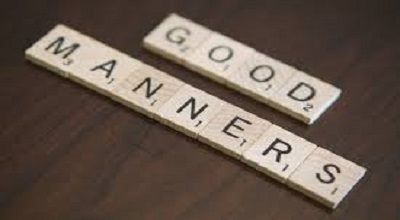Importance of Good Manners
Good manners play a crucial role in shaping social interactions, fostering positive relationships, and contributing to a harmonious society. Here are several reasons why good manners are important:
- Social Harmony: Good manners contribute to a smoother and more pleasant social environment. Politeness and respect create a positive atmosphere, making interactions enjoyable for everyone involved.
- Positive Impressions: Displaying G-M leaves a favorable impression on others. It can enhance your personal and professional reputation, as people are more likely to remember and appreciate those who treat them with courtesy and consideration.
- Effective Communication: Good manners are essential for effective communication. They help convey messages with clarity and avoid misunderstandings. Politeness encourages open and honest dialogue, fostering better understanding between individuals.
- Professional Success: In the workplace, good manners are often linked to professionalism. Treating colleagues, superiors, and subordinates with respect can contribute to a positive work environment, improve teamwork, and enhance career prospects.
- Building Relationships: G-M is the foundation of strong and lasting relationships. Whether in personal or professional settings, treating others with courtesy and kindness helps build trust and fosters strong connections.
Read more…
- Cultural Sensitivity: Different cultures may have varying expectations regarding manners and etiquette. Being aware of and respecting cultural norms helps individuals navigate diverse social settings and promotes cross-cultural understanding.
- Conflict Resolution: When disagreements arise, maintaining good manners can facilitate smoother conflict resolution. Politeness and consideration can help de-escalate tense situations and promote constructive dialogue.
- Self-Respect: Practicing G-M reflects self-respect. When individuals are mindful of how they treat others, it often reflects a positive self-image and a sense of personal responsibility for one’s actions.
- Role Modeling: Demonstrating good manners sets a positive example for others, especially for children and younger generations. People often learn and emulate the behavior they observe, so exhibiting good manners contributes to a more courteous society overall.
- Civic Responsibility: G-M extends beyond personal interactions to broader civic responsibility. Respecting public spaces, following rules, and being considerate of others in the community contribute to a more harmonious and cooperative society.
Summary
In summary, good manners are essential for creating positive social interactions, building relationships, and fostering a respectful and considerate society. They play a vital role in personal and professional success and contribute to the overall well-being of individuals and communities.
